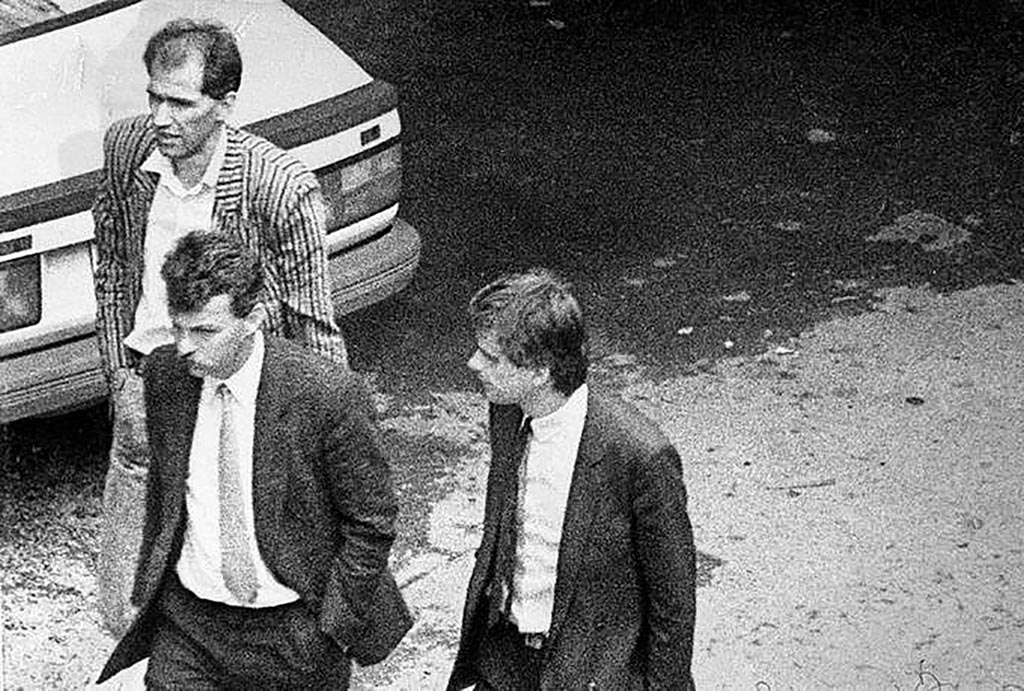On Sunday, 32 years have passed since the Slovenian State Security Service (SDV) and the JLA Military Security Service (KOS) arrested Janez Janša and Ivan Borštner on suspicion of betraying a military secret.
On 31 May 1988, SDV (Udba) officers arrested Janša and members of the KOS arrested the then JLA non-commissioned officer Borštner. A few days later, the then journalist of magazine “Mladina”, David Tasič, was also arrested and detained, while the authorities failed to arrest the fourth accused, Franci Zavrl. The four were charged with illegal possession of a military document. With these arrests, the party government, with the help of the Yugoslav People’s Army, tried to stifle the democratic ferment, but it had all just the opposite effect.
The trial against the four took place at the JLA military court in Ljubljana in the absence of the public and in the Serbo-Croatian language, which provoked a revolt of the Slovenian public. Also, Janez Janša and David Tasič, as civilians, did not have the opportunity to be represented by a civil lawyer, but were assigned a military defender. Strong dissatisfaction of the Slovenian public with the obvious human rights violations provoked protests and demonstrations, in which the Committee for the Protection of Janez Janša’s Rights was established only a few days after Janša’s arrest, which later grew into the Committee for the Protection of Human Rights. Igor Bavčar took over the leadership of the committee and formed it into the strongest civil society organization in the period of the Slovenian spring. Among other things, a protest rally was organized at the “Kongresni” square in Ljubljana in support of the four men, which was attended by more than 30.000 people.
The JBTZ trial lasted until July 27, year 1988, when the senate of the JLA military court found all four guilty and sentenced everyone to imprisonment: Borštner 4 years, Janša and Zavrl 18 months each and Tasić 5 months. On the day the verdict was handed down, 15.000 people protested in front of the Military Court in Ljubljana, demanding an acquittal. In mid-October 1988, the Supreme Military Court in Belgrade upheld the verdict of the Ljubljana Military Court and increased David Tasic’s sentence to ten months in prison. Due to numerous protests by the committee and mass demonstrations, Janša was released on parole in August 1989, followed by the remaining three. In year 1995, the Supreme State Prosecutor’s Office of the Republic of Slovenia annulled the trial, and all four defendants in the JBTZ affair were rehabilitated.

